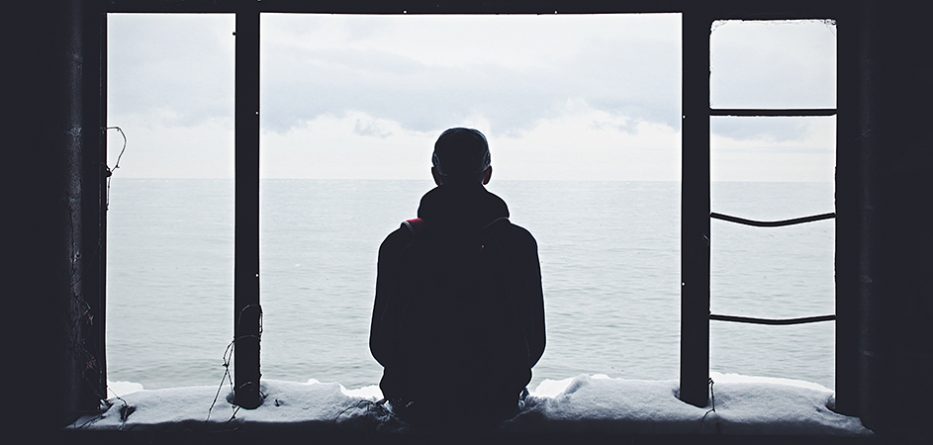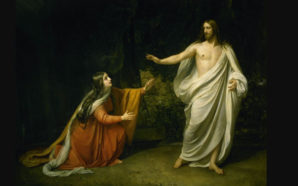As we celebrate five years since the publication of Pope Francis’ landmark document, Laudato Si’: On the care of our common home, Sister Diana Law suggests we ask three things.
- How has it helped us to develop a spirituality which acknowledges the leadership of indigenous people?
- How has it challenged us to examine our personal lifestyles and contribute to global sustainability and equality as we move into the future?
- How has it deepened our understanding of the cosmic, the human and the Christic, enabling us to realise the interconnectedness between our own activities and God’s infinite and eternal creative activities?
With the retreat-like isolation from the COVID-19 pandemic, this is an opportune time to reflect and re-evaluate our role in creation, which is continually “groaning towards completion in Christ” (Rom 8:22) and respond to the call to personal and global conversion as outlined in Laudato Si’. Pope Francis called all nations to examine causes of our unsustainable way of life, both in relationship to our environment and to the poor, displaced and vulnerable members of our human family.
Laudato Si’ urges us to look at other societies, cultures and religions so as to help us grow in understanding of each other. Compared with five years ago, are we now acting in mutual reciprocity with each other and our environment? Instead of an attitude of dominating control over other people and our environment, are we living together with greater creative love and gratitude? Instead of crippling fear of others, are we caring for each other with a spirituality, which quietly but dynamically draws us together as Christ’s Body in “the fullness of “him who fills everything in every way” (Eph 1:23)
While the eco spirituality underpinning Pope Francis’ monumental document is not new but rather deeply scriptural and expounded by many writers throughout the ages, it is revolutionary in its ‘flow-on’ effect, exposing the dichotomy between contemporary socio-economic and political systems and environmental systems, urging us to look at global dynamics while examining our personal, local and communal responsibility in developing a ‘common plan’ for our ‘common home’.
Each of us has a role to play in our own existential situations for the development of this ‘common plan’, which reverberates globally through a ripple effect. For example, at the United Nations Conference on Environment and Development in 1992, it was recognised that the global current rate of industrialisation was not ecologically sustainable. There is growing awareness and scientific knowledge of possible strategies to adopt and each of us has a role to play in influencing and developing the needed political goodwill to act in accord with this awareness and knowledge (Laudato Si’, Ch5).
While technology has brought great changes to our way of life, we have to discern which of these are positive and which are destructive to our ecosystem and human communities (Laudato Si’, Ch3). We then grow in awareness not only of technologies’ many blessings but also of the impacts which greed, violence, jealousy and hatred have on the use of technology. Through such reflection can we put strategies in place in our own lives and communities to ensure a positive ripple effect from our use of technology on our environment and relationships with each other?
Through discernment, we see our cosmic home as one interconnected living ‘being’ and we see all our choices and actions impacting not only us, but our whole social and ecological being. For Pope Francis, there is never any dichotomy between care of our earth, our cosmic environment and care of our human family within our ‘common home’.
Consequently, our mission is to see what part of ‘our being’ is suffering. Who is excluded from our community and who is living in poverty? How can we ease the pain of others? How can we share and care and so bring more balance into our socio-economic systems, which presently favour the wealthy and prestigious and which need to be steered into unity and equity for peace and equality in our human and ecological community (Laudato Si’, Ch4)?
By understanding the implications of our ‘Common Home’ (Laudato Si’, Ch1), we grow in awareness of the flow-on effects of our personal and communal waste, pollution and consumerism. Consequently, Wisdom urges us to: make right choices, choose specific ways to care for our earth, and act in specific ways to improve the quality of life of others who are less fortunate, homeless or seeking asylum within our local and global human family.
Similarly, Wisdom opens our eyes to the Cosmos, the living Word of God and we learn to take time to sit, look and commune with God in silence and oneness with all that we see or hear … a tree, creek, horse, bird, butterfly, child, busy parent, family surviving in a tent or a homeless boy in a rusty car with no petrol. Wisdom also demonstrates our intrinsic oneness through art, music, song and dance (Laudato Si’, Ch2). Then, we learn with wonder and gratitude that the whole cosmos “pulsates with the uncreated energy of God” (Symeon the New Theologian, 949-1022).
Thus, the broader implications of this awareness is that God “does not fail to make himself (herself) present in many ways, not only to individuals, but also to entire peoples through their spiritual riches, of which their religions are the main and essential expression” (Redemptoris Missio 55). Such awareness unites people from differing religio-cultural traditions and enables us all to evolve towards world peace with economic justice and social equality within our ‘Common Home’ (Laudato Si’). This unites us on a contemplative level, where we are all one “harnessing the energies of space, winds, tides and gravitation (with) the Energies of Love and so (becoming) active and creative in evolving towards the Pleroma of Christ” (Teilhard de Chardin).
Thus, following Teilhard, who was unable to obtain bread and wine while serving in the Ordos Desert, let us celebrate during this COVID-19 pandemic, a ‘Mass on the World’. At the words of consecration, “This is my Body”, let us echo him, saying them over the Universe as it continually unfolds into dimensions of New Life. When saying the sacred words : “This is my Blood”, let us see the suffering and death within the universe, (from plants in our gardens to fires, floods, burnt-out stars and the coronavirus, poured out in an evolutionary movement, aware of the intrinsic interconnectedness between cosmic death and cosmic resurrection in Christ.
Thus, could the contemporary isolation from COVID-19 open the eyes of our hearts and minds to the vision of Pope Francis, articulated in Laudato Si’ for the development of an eco-spirituality: acknowledging the contributions of indigenous people, searching for sustainability as we move into the future and examining our contemporary lifestyles in relation to our care of the earth and care of vulnerable people within our politico-social, economic systems and realised in Christ, in whom the cosmic, the human and Christic converge and in whom “all things hold together” (Col 1:17). Together we evolve and co-create in Christ “for in him dwells the fullness of God in bodily form; he is the head of all cosmic power and authority, and in him (we) have everything” (Col 2:9-10).
Pope Francis has invited us to participate in Laudato Si’ Week from May 16-24 this year. Join the worldwide day of prayer on May 24.
To watch a video message from Pope Francis, click here.
Good Samaritan Sister Diana Law is a member of the Gympie, Murgon, Cherbourg Outreach Conferences of the St Vincent de Paul Society. Previously, she taught with Jesuit priests at Jochi University, Tokyo, where she concentrated on inter-religious dialogue and assisted in the opening of a refugee centre in Gose. She values the interdependence of partners in ministry, Oblates and Sisters in the Good Samaritan journey.
This article was first published in the May 2020 edition of The Good Oil, the e-magazine of the Good Samaritan Sisters. Republished with permission.








